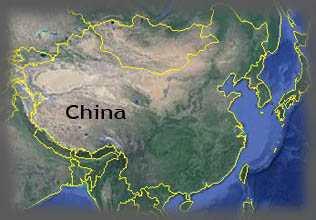
| Currency exchange |
$1 = 6.06 Chinese Yuan
Cambodia Travelogue
Beijing
$1 = 7.8 Hong Kong dollars
Other Asia travelogues
Laos Travelogue
Thailand Travelogue
Photo galleries
Xi'an
Lijiang
Yangshuo
Hong Kong
Photos
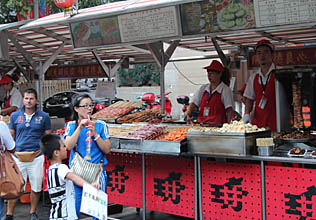 |
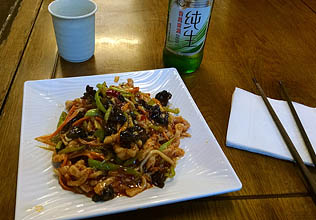 |
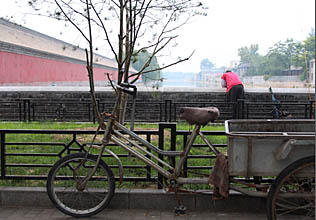 |
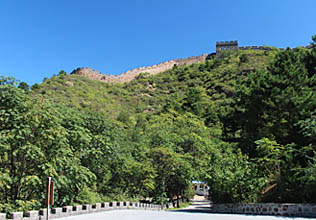 |
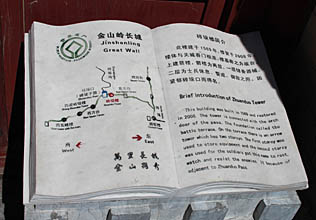 |
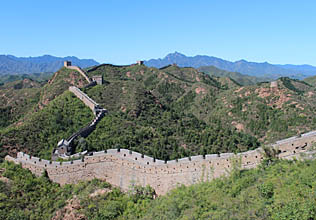 |
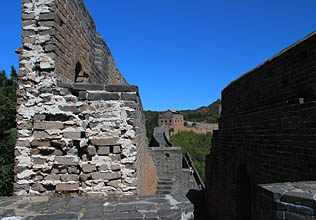 |
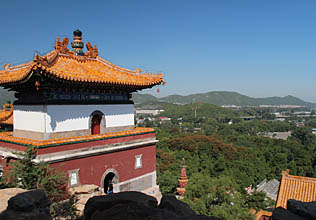 |
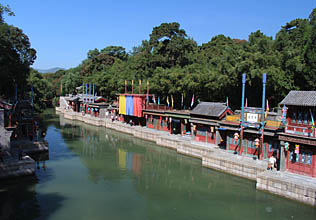 |
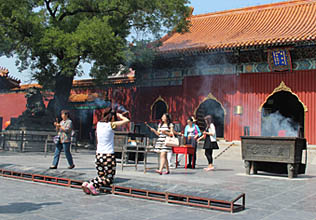 |
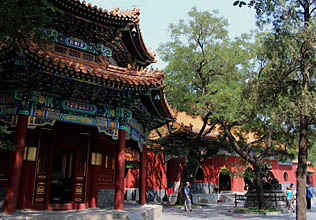 |
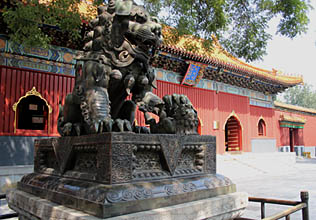 |
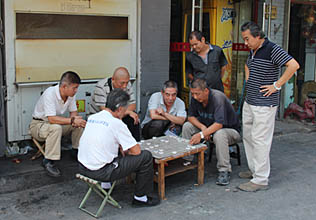 |
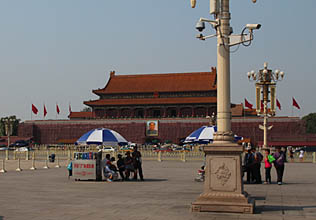 |
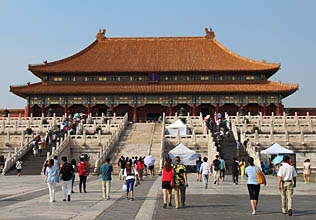 |
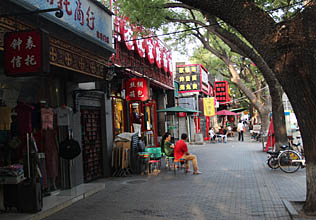 |
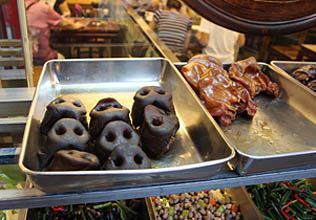 |
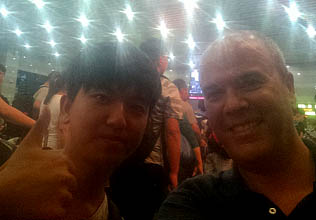 |
 |
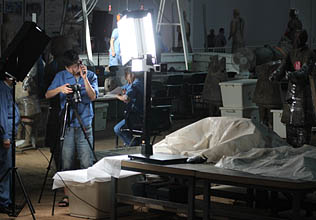 |
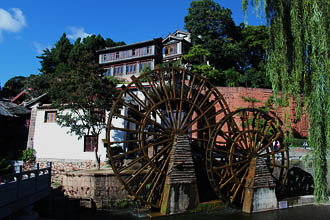 |
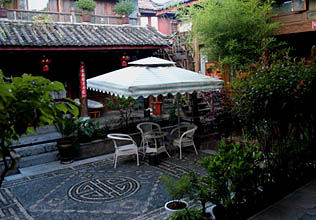 |
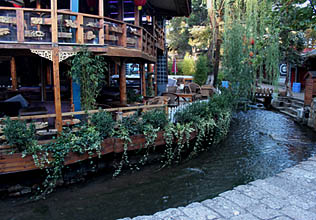 |
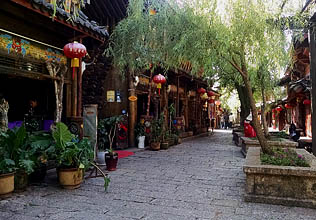 |
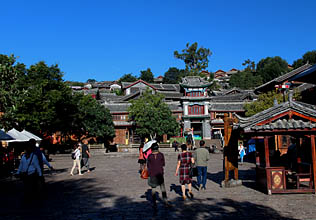 |
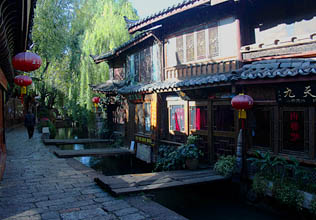 |
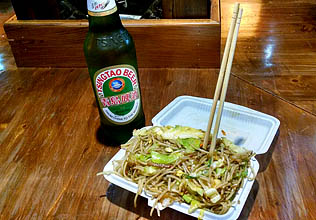 |
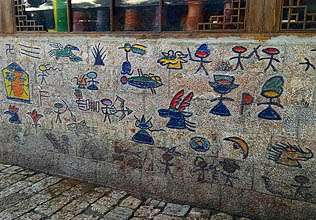 |
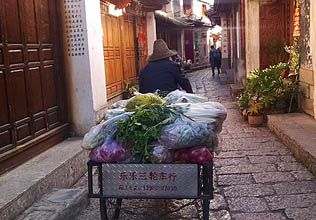 |
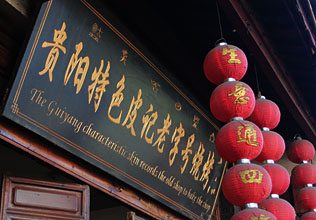 |
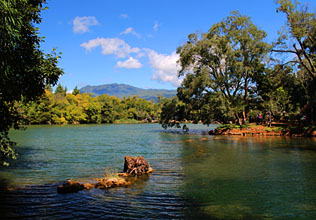 |
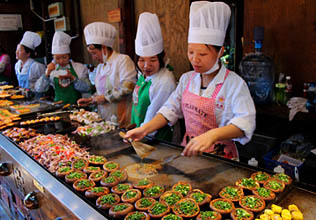 |
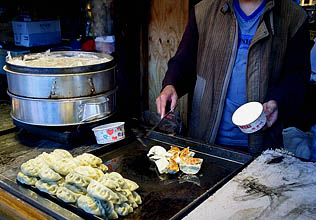 |
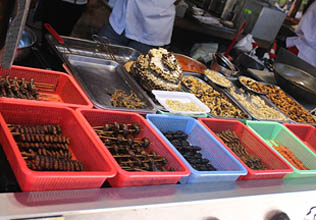 |
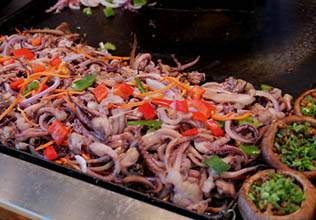 |
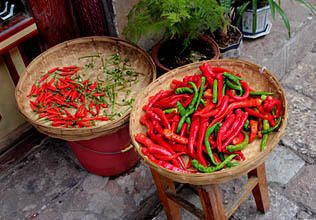 |
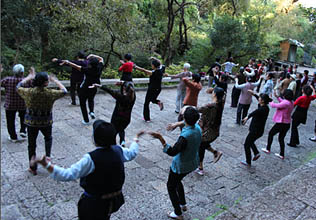 |
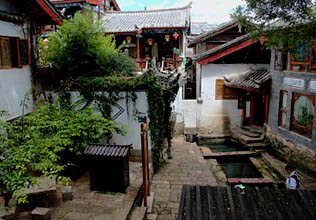 |
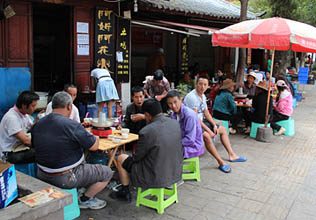 |
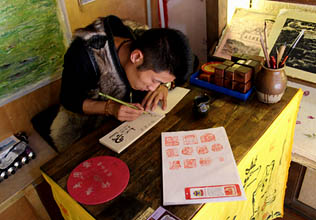 |
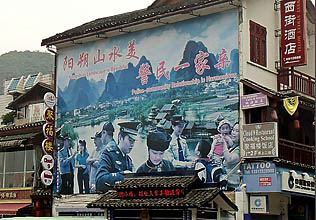 |
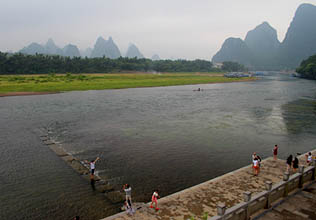 |
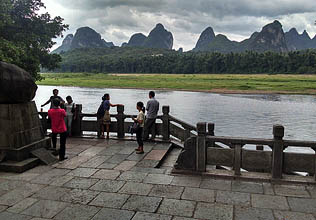 |
 |
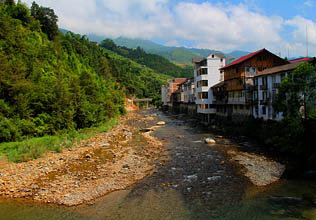 |
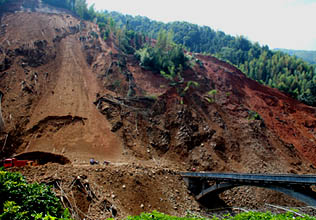 |
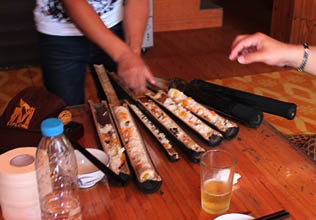 |
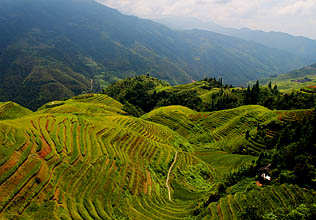 |
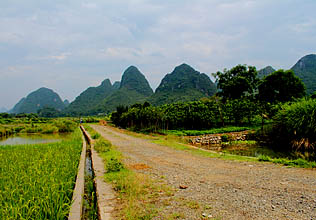 |
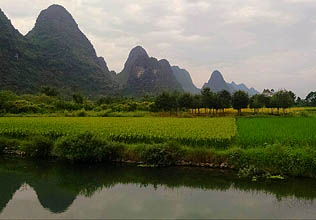 |
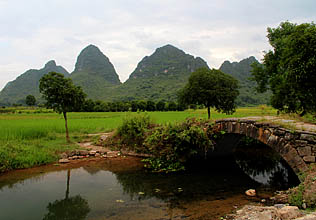 |
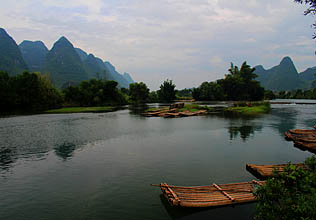 |
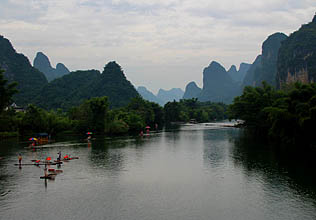 |
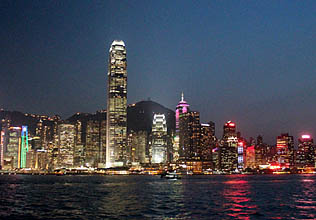 |
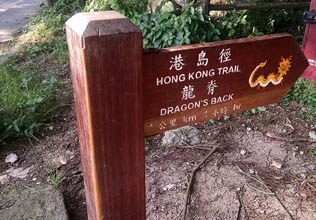 |
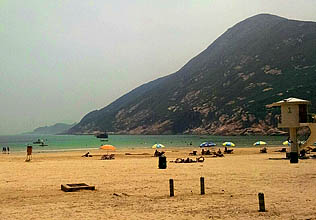 |
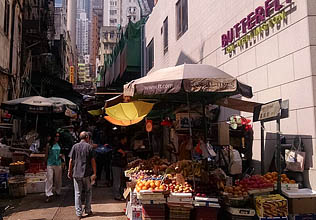 |
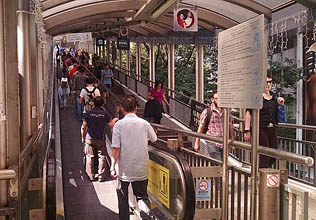 |
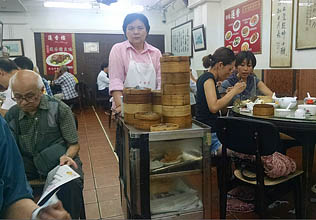 |
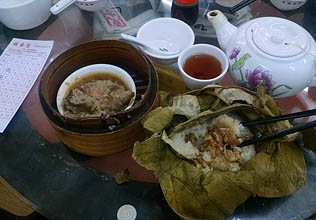 |
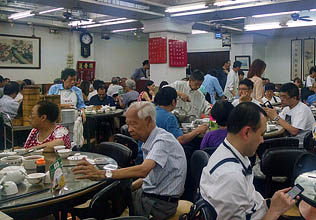 |
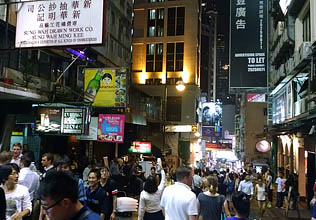 |
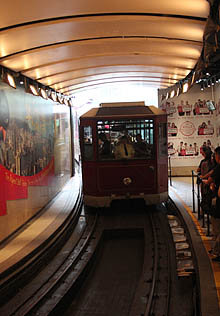 |
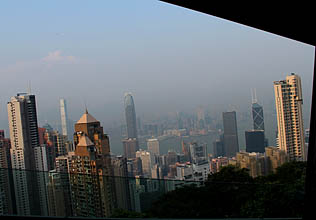 |
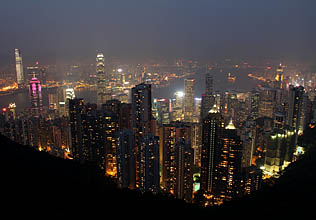 |
Below is the account of my first trip to China, in September 2014. The trip included stops in Beijing, Xian, Lijiang, Yangshuo, and Hong Kong.
In addition to the photos you see to the left, there are many more photos (in higher resolution) in the five China galleries linked to the left.
When I traveled to southeast Asia in 2003 I fell in love - with the food, the culture, the history, and the people. I knew I would have to come back to Asia and explore more. My plan was to come back sooner rather than later, but somehow other trips took precedence for the next 11 years. Better late than never. China has been on my must see list for a long time. It's also a big country and I wish I had more time to visit, both to stay longer in each place and to see more of it. Guess I'll just have to make several trips.
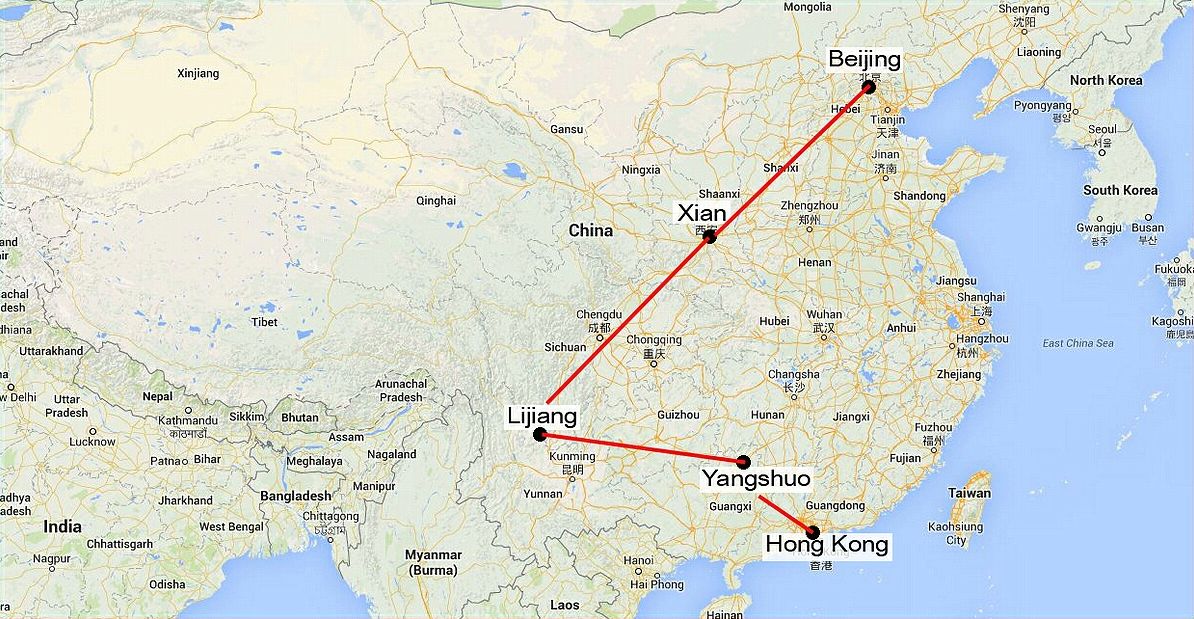
My itinerary
Landing in Beijing
After a nearly 15 hour flight from Chicago, I land in Beijing on Sunday afternoon.
September 7 - I arrived in Beijing a bit ahead of schedule, about 2:45, but after figuring out the airport express train, I made it to my hotel just before 5pm. In Beijing, I stayed at the Lee Garden Service Apartment. It's a very nice place for the money. It was about $160 a night with very clean rooms and a comfortable bed. The location was good in the sense that it was convenient to the Dengshikou metro station, but frankly the neighborhood disappointed me. I read so much about Wangfujing being a hip and happening part of town. I guess it's heaven if you like to go shopping, but I don't, so it was a bit of a letdown for me. After being there just a short while, I realized I probably would have picked a different part of town if I had known the city better. Other neighborhoods like Nanluoguxiang and Chaoyang seem to have much better and more interesting options for someone who is interested in good food and an interesting atmosphere. I think Wangfujing is so near to the tourist attractions that it's a little hard to enjoy it for what it is for all the people hawking tours, snacks and drinks, and trying to sell souvenirs.
And of course, there are the scammers. The two most well known scams being the "let's have coffee" girls, and the art students. I encountered both. One girl stopped me when I was no more than a block from my hotel the first time I ventured out. "Hi, where are you from?" is how it always starts out. They show some interest, how long are you here, can we practice English, etc. They aggressively try to engage you in conversation. Then they inevitably suggest going to get some coffee. The scam is that you go for coffee (or tea in some cases) and are presented with a bill for hundreds or thousands of yuan.
I got approached so many times and so often, that eventually when I heard "Hello, where are you from?" I just quickly said, "I'm from America, yes your English is good, and no I'm not having coffee with you." The art scam is similar, except not quite as fraudulent. You are highly pressured to buy art supposedly made by students to help support their education. The scam part of it is that the art is nearly worthless and is mass produced and probably not a single jiao (1/100 of a yuan) of the money goes toward education.
Without a doubt Beijing has one of the best subway systems I've ever seen, and it keeps growing. When it first opened in 1971 the subway had two lines and 17 stations. Today there are over a dozen lines and 232 stations, with more to come. And each ride costs only 2 yuan, about 33 cents. The best way to get around Beijing is to buy a subway card so you can pre-load it with money and just scan the card as you enter. It couldn't be any simpler. I bought my card as soon as I got to Beijing. For just 50 yuan (20 for the card and 30 yuan worth of rides) I rode the subway as much as I wanted during my stay.
September 8 - Hiking the Great Wall
On my second day in Beijing, I hiked the Great Wall. And wow, it was a bit more challenging in some parts than I had imagined. I walked a span of 22 towers from Jinshanling to Simatai. The weather could not have been any more perfect. Literally not a single cloud in the sky. The temperature was in the low or mid 80s, but it was dry instead of the humid summers Beijing usually has. It was not unpleasant at all. Sometime it even felt a bit cool when a breeze came through.
This section of the wall is a bit further out from Beijing, about 120 km, but it's so much more of an authentic experience, it's worth the extra effort to get there. Most tourists go to a section called Badaling because it's very convenient. In fact, it's connected to the Beijing subway system. As a result, there are hoards of tourists. And just about every brick and stone in this section is newly reconstructed. So if you're looking for an authentic Great Wall experience, you have to get further out than Badaling.
Jinshanling was just what I was looking for. I was told that very little of this section was reconstructed, and it showed. Many parts of it were crumbling and falling apart. Of course this is a little bit sad in a way, but there's also a beauty in it that's hard to describe. I think about when I visited Angkor Wat in Cambodia. To see what nature does to even the most triumphant edifice, built to demonstrate power, is a humbling site.
Traveling always teaches me so much. One of the things I learned on this trip to the Great Wall was how it was constructed. The mortar was a mixture of rice powder, egg whites, and sand. Sounds primitive but much of it is still standing after hundreds, and in some parts, thousands of years.
Hiking the Great Wall was definitely one of my bucket list items. It's hard to put into words what it's like to experience this most famous of world wonders.
After the hike, one of the guys hiking along with me, Jason from Pittsburgh, joined me at a neat little brew pub down a very uninviting looking hutong just off Nanluoguxiang. We walked down this dark path, turning here and there, wondering how a western style brew pub could be located anywhere near here. But sure enough, after a short distance I turned to see a fairly minimalist sign on a door that said "Great Leap Brewing". Inside was a beer garden courtyard that looked like it might have been transplanted from Austin, Portland, or Seattle. Just the incongruity of such a trendy brew pub located like a secret garden in the middle of a drab and nondescript hutong is worth seeking it out. Plus I'm certain they have the best beer in Beijing.
September 9
The Lama Temple was one attraction in Beijing I knew I wanted to see. It is one of the most ornately decorated and colorful temples in China. It is the largest and most important Buddhist temple in Beijing. It was originally built as a palace for the emperors in the late 17th century, but was converted to a monastery for Buddhist monks by the 1730s.
I don't know what it is, but I feel a definite sense of peace and tranquility at Buddhist temples. They are invariably quiet except for the entrancing chanting of monks in meditation, they always have the fragrance of burning incense, and the monks in their red and orange robes seem to be the epitome of simple living. I really enjoyed walking the calm, quiet grounds of the Lama Temple.
Just a few subway stops away from the Lama Temple you'll find Tiananmen Square, the now notorious square that served as ground zero for student protesters fighting for democracy in 1989. In the road just in front of the square is where a man was famously photographed standing in the path of a moving tank.
For something that is undeniably the world's largest public square, Tiananmen Square is hardly grand. It's not only sparse, but it's one of the most uninviting public spaces I've ever been to. The first thing you notice is the security lining the entire square. You have to enter at a specified point, and you have to go through a security checkpoint to get in. It is lined by fences and guards. Once you're in, you notice that the entire square, every inch, is monitored by cameras. There are cameras stationed about every 30 feet, pointing in all four directions as well as a pan/tilt/zoom camera monitoring everything. In addition to that Big-Brother-ish presence, there is no seating anywhere in the square. There is not a bench to be found. And if people do happen to sit on the ground, guards quickly come to motion them to get up.
Tiananmen Square sits directly across from the Forbidden City, with a prominent view of a large portrait of Chairman Mao. The street between the two is so wide, with so many lanes of traffic, crossing over the road would be impossible. Instead you have to cross by underground tunnels.
The complex of buildings that make up the Forbidden City is massive. From south to north, the grounds stretch over a mile. It took me a little over two hours to walk my way through the designated path, read a little bit about each building from the placards placed at each, and take some photos. As impressive as each of the buildings are, it's easy to get overloaded and start seeing them as all the same instead of appreciating each for its own uniqueness. They each have somewhat amusing and lofty names, like Hall of Supreme Harmony, Palace of Heavenly Purity, and Pavilion of Spreading Righteousness. If you go to Beijing, definitely go see the Forbidden City. But make plenty of time for it. Stop, linger, take pictures, read the placards. It is a fascinating and beautiful place with a rich history.
For my exit from Beijing, I decided to take the overnight sleeper train to Xi'an. I've always liked travelling by train. I saw several advantages to taking the overnight train. You get to see the countryside along the way, it was less expensive than another night in a hotel, and the train terminal is right in the middle of town, unlike the airport. As I waited a couple of hours to board my train, a college student asked if he could take the seat next to me. He asked me something in English. I was surprised and pleased that here I could have a decent conversation with a young person from China. There are so many things people from two different cultures are curious about and would like to ask questions of each other. Here was an opportunity. The young man introduced himself by, as he called it, his English name, Eddie-son. Yes, just like Mr. Miyagi in the Karate Kid referred to Daniel as Daniel-son, Eddie referred to himself as Eddie-son. He told me his real Chinese name also, but to me it was pretty unpronouncable. He was eager to speak to me to both learn about America from an American and to also practice his English.
September 10 - Xian/Lijiang
I took the overnight Z19 train from Beijing to Xian. I splurged a bit and booked the Superior Soft Sleeper, which only has two bunks and a private bath. The other bunk was booked, but it was booked by a guy travelling with his wife and son, so other than to sleep he was in their cabin, leaving me to have my cabin mostly to myself.
I won't say it was the worst train ride I'd ever had, but I didn't get much sleep. The sleeper car was shaking the whole night like a car with wheels out of balance. I guess I should look on the upside. If it was the 80s and I was staying at a motel, I could have burned through a whole lot of quarters for the same experience.
Pulling in to the Xi'an railway station, I became very thankful that I did a lot of pre-trip planning and research. I knew I could leave my luggage there while I visited the terracotta warriors and I knew the bus I needed, marked 5 (306), was just to the left as you exit the station.
I often say seeing some of the world's most famous sites is like a chance encounter with a celebrity. There's almost a sense of "is this for real?" Coming face to face with 2500 year old warriors sculpted from clay - individually, not from a mould - definitely gave me this sense. I've seen and read so much about the terracotta warriors. Now here I am looking at them with my own eyes. It was a bit overwhelming. The grandeur and magnitude of what was done to create this clay army is mind boggling.
Getting back to town, I had to laugh at the traffic. Beijing traffic is bad. I think Xi'an is worse. Literally, no one gave any regard for the traffic lights. Everyone just crowded into the intersection, trying to get the nose of their car in front of another car to prevent someone else from getting in and getting their place in the queue to go the direction they're heading.
A bit down from this intersection, I saw what might have been causing part of the jam up. There is a school just past this intersection that sits on a six lane road, three lanes in each direction. Parents coming to pick up their kids simply parked in the street. Two lanes in each direction were nothing but parking.
Despite this, I made it back in plenty of time to catch the airport shuttle. Again, a little pre-trip planning informed me of exactly where to find the airport shuttle, parked in front of the Jiefang Hotel, also to the left as you exit the station.
Once at the airport I realized what I started to suspect before my trip started. And that is not to expect punctuality in a scheduled flight. Just because a flight is supposed to leave at 3:05 doesn't mean it will. In fact, my 3:05 flight to Kunming hadn't even arrived from wherever it was coming from by the scheduled departure time. We finally boarded and departed about a quarter after 4pm.
I also learned something first hand on this flight that I had been told about the differences between American culture and Chinese culture. Americans expect a certain amount of personal space. The Chinese, with 1.3 billion of them, have probably given up on the idea. During my connecting flight to Kunming, the middle-aged lady sitting to my left in the middle seat began getting up, so I naturally began to reach for my seatbelt to unbuckle and move to the aisle to let her out. Before I could get unbuckled, she had begun climbing over me, straddling me like I was getting a lap dance, and continued climbing over me until she reached the isle. As the saying goes, when in Rome... or China as the case may be.
My next leg would take me from Kunming to Lijiang and it also departed about an hour late. And for some reason, unlike in the U.S. they could not, or did not, check my bag all the way to Lijiang. I had to claim the bag at Kunming and re-check it for the flight to Lijiang.
I arrived in Lijiang around 10:30pm and headed toward the taxi stand. There a woman approached me speaking something in Chinese, which of course I had no clue what she was saying. I attempted to use Google Translate to ask if the taxi could take me to the north entrance of the ancient town. She typed "80" into her phone's calculator. I knew this was too much. I had read beforehand that this trip should be about 30 yuan. I shook my head and went directly to the taxi driver, who looked like he was too busy listening to the radio to help me and seemed bothered that I was trying to ask him to take me somewhere.
I pointed to the meter and showed him the same Google Translate message. He just kind of huffed at me. The lady then pulled me by the arm and showed me her calculator again, which now read "100". I don't know where she learned to bargain, but if I'm not interested at 80, I'm certainly not interested at 100. Maybe she thought I was getting more desperate or maybe it was a penalty for hesitating at her first offer. In any case, at that point I decided I would just take the shuttle waiting out front, for 20 yuan, even though I didn't know for sure where it stopped or which direction I would need to go from there to get to the ancient town.
As it turned out, a couple of young Chinese guys on the bus were helpful enough in pointing me in the right direction. I got to the old town and was still a little bit lost trying to find my guesthouse. Even though I had a good concept in my head of how to find it, and even made mental notes about landmarks I would see, Google maps was off a bit and showed me in a different part of the city than I was actually in. I should have listened to my instinct to follow the river. It leads right to the old city square, which from there I knew how to find where I was staying. But not too many minutes passed and I did happen upon the square. Following the path I knew I needed to take, I found my guesthouse right away.
September 11- Lijiang
After a good night's sleep I was up early to start exploring. I have been to many beautiful places in the world, but as I write this just after wandering around old Lijiang and visiting the Black Dragon Pool park, I can honestly say I think Lijiang is among the most beautiful places I have ever been. The serenity here is immediate and I can feel it physically. The perfect weather helps, about 75 degrees with a cool breeze and just a few slight clouds to give some interest to my photos.
I came across the iconic view of Lijiang, looking over the pool to a little bridge and temple, with the majestic mountains looming behind. I have to say, it's a breathtaking view.
In fact, there is so much beauty in this park I literally almost was brought to tears. It is just so gorgeous and so peaceful. This is what a vacation should feel like.
After spending the first four days of my trip in Beijing and Xian, I was sadly feeling like I couldn't wait to get somewhere else. I didn't especially enjoy Beijing. But being here in Lijiang makes me feel like this is a place I would come back to, and maybe wish I had booked a little more time here to begin with. I feel so relaxed here.
Street Food
I have always been a fan of street food. And Lijiang, thankfully, has an abundance of it. I have already tried several items. Only one have I thrown away, not because it was gross but because it just wasn't very appealing. It was some kind of vegetable that I'm not familiar with. It was still very firm like it hadn't been cooked enough and had stringy, hair-like fibers that were just too annoying to continue eating it.
But other items I had include fried pork and pea pot stickers with hot chili sauce (awesome!); a spinach, mushroom and onion pastry; a portabello mushroom with onions, chilis, and peppers (delicious). I also had coconut water made from a whole coconut shredded in front of me, and a mango and pomegranate smoothie. So far, I have not paid any consequences.
Although Lijiang is one of those beautiful little towns that has been preserved from its ancient days, it's also been clearly modified some to cater to tourists. There is McDonalds, KFC, and Pizza Hut right in the ancient town square. Last night as I was coming in I heard amplified dance music and live bands fighting for tourists attention from every direction. I also saw quite a few young Chinese stumbling around after having too much of a night out. But overall, despite these concessions to tourism, the town still feels somewhat authentic and is inarguably very charming.
In the evening, I went wandering around the river. I found that at night, the river area turns into a continuous string of karaoke bars. Many of them have few patrons, but each are competing with the others to be heard above all the rest.
One thing I found amusing was the cover change these bars had. Young men would stand out front of the bars holding signs indicating the cover charge. Starting at 100 yuan from the north side and going south, the price starts to drop. First it dropped to 98 yuan (you save a whopping 2 yuan, about 33 cents). Then a little further and it dropped to 88 yuan. Even further down it dropped to 68 yuan. I don't know why they skipped 78 yuan. Maybe 78 is an unlucky number. But whatever the charge, they all seem like unlucky numbers. Most people were outside the bars listening and very few were going in. I don't blame them. 100 yuan is a lot of money for a cover charge (about US$16.50). I wouldn't pay that in the U.S., where per capita income is much higher. But maybe the cover charge included several drinks because at most places it seems like everyone had a six pack of beer sitting on their table.
Something I've seen here in Lijiang that you would never see in the U.S. is open canals and what look like sewer drains (but are really just small canals) with no guardrails or any kind of protection from falling in. There are small warning signs in some places to be careful, but I imagine nonetheless people step into them or get bumped, or drunkenly stumble into them when they're not paying attention. Just in the few days I was there, I witnessed two kids walk into the canals in Square Street. One boy about 12 just bought something at a shop and, with all the exhuberance of a boy that age, just turned around and darted toward his friends. SPLOOSH! He went up to his thighs in the canal. At least he didn't get hurt and was laughing about it (but not as much as his friends were laughing). One girl about nine wasn't so lucky. She also fell into the same canal in the square and looked like she might have at least twisted her ankle. She was being carried off by her family.
September 12 - Lijiang
One thing that will be a lasting memory of Lijiang for me is the music heard along every street. It's the same song and style everywhere, a simple acoustic guitar and djembe drum. The sound is distinctive and without fail at every shop selling the CD of this music is someone playing djembe along with the CD with a smile on their face.
Another fond memory I'll have of Lijiang is the young food stall guy who tried to tell me he was serving tiger. When I questioned him skeptically, "Tiger?" he mimmicked the fangs and claws of a tiger and repeated, "Tiger". He barely said it again when he could no longer keep a straight face and started laughing. I saw him there again the next day and joked with him, pointing at his grill and saying "Tiger" and doing the mimic myself. He chuckled at this.
Interactions like this make me wish the language barrier wasn't so significant because one of my favorite parts of traveling is getting to know people, finding common ground, and finding a shared sense of humor. It really makes the world a smaller place.
Another fun interaction I had was when I came across a young guy and girl in Yuhe Square playing a game I'd never seen before. It was almost like ping pong, played with brightly colored balls, but instead of a table and a net, they were simply using a kind of paddle that opened and closed with a springing action to toss the balls back and forth. The trick was to see how many balls you could keep in the air. It was almost like juggling between two people. The guy invited me to try it, and even though it took me a minute to get the hang of it, we had a pretty good volley going on for a while with two balls. I'll have to look for this when I get home.
I didn't hear a lot of western music in Lijiang like you often hear in touristy places. I did hear Adele's "Someone Like You", but other than that the only two American songs I heard were re-done in a blend of English and Chinese. The Eagle's Desperado was sung by a female and I think the only word sung in English was the actual word "desperado". The other song was "Knockin' on Heaven's Door". Again, mostly in Chinese except the well known verse "Knock knock knockin' on heaven's door".
One thing that has really surprised me about traveling in China is realizing that China's tourism industry is really geared toward the Chinese. They are tourists of their own country. I guess much in the same way that Americans are tourists of America. In many places I've been, there is a desperation to win the business of western tourists, but for the most part that has not been the case here. I feel relatively ignored here. It's odd.
September 13 - Lijiang to Yangshuo
Leaving Lijiang, I decided to get to the airport the same way I came in, by the shuttle bus. For 20 yuan, it's much better than a 100 yuan taxi ride. Both ways, I've saved 160 yuan, about $27.
I had a close call flight wise trying to get to Yangshuo. I had a flight from Lijiang to Chongching and then from Chongching to Guilin. When I got to the airport, the flight board said my flight to Chongching would be an hour and forty minutes delayed. But my layover there was only 35 minutes. There was no way I'd make my flight to Guilin. But strangely, after announcing the delay, we started boarding at 5:06pm, just one minute after the scheduled departure time of 5:05pm.
I was still cutting it close. We were due to land at 6:58 and my other flight was scheduled to leave at 7:05. This is one time I've been thankful that Chinese domestic flights all seem to be delayed because my connecting flight was also late and I was able to get to the gate about 15 minutes before boarding began.
I arrived in Yangshuo and found what looks like a cross between Las Vegas, Gatlinburg, and Panama City. This is not exactly what I was expecting. I'm not disappointed, but it's quite different from what I pictured. I had seen the images of rural Yangshuo with images of the karst peaks and the river. What I see here reminds me very much of Khao San Road in Bangkok.
I initially checked into a hostel on Diecuilu that is near the center. Since I had no idea what I was getting into here, I didn't realize how loud that area is. I stayed for the night, but the next morning I moved to a modest hotel that's right on the river. Given that it's the same price, but has a nice restaurant attached, a private balcony looking out to the water, it's much quieter, and is very clean I think this is a better fit for me. My balcony has a 180 degree view of the river!
September 14 - Yangshuo
I started wandering around the town this morning trying to get to know the place and get my bearings. In the light of day it doesn't seem to be as Vegas-ish as I first thought when I arrived here last night.
The hotel that I've moved to, the Riverview Hotel, is a bit more suited to me. I did like the Green Forest Hostel, and especially the social atmosphere there and the helpful young staff. It did seem like a nice, convivial place. But the noise from the street even very late and into the early morning was more than I could tolerate. When I told him why I was changing to a different hotel, the attendent offered to change me to a different room, which was kind. But I don't think it would have made much difference. I don't think there is any location in that place that would be quiet. Part of the problem was people yelling in the hallways and that would be present no matter where the room was located. And even though the hostel itself was very clean and comfortable, the stairs leading up to it looked worse than any New York City subway or public housing project I've ever seen. Layers of filth splattered on the walls for what looks like decades that has never been cleaned.
One thing I like about hostels in general, especially when travelling solo, is that they tend to have all the services you need under one roof. You can get your laundry done, a ride to the airport, and all the local tour information you need. It's also a great place to meet other people and find a group to hang out with.
With the exception of the last part, the social part, the hotel I've moved to seems to also do a good job with the other aspects. They have an excellent tour desk and I will no doubt use many of their services while I'm here. They also have a 80 yuan airport shuttle that I'll definitely be using. Tomorrow I'll be taking their tour to see the Longji rice terraces. And with my other days here, I'll probably rent a motorscooter and see some of the surrounding area. I also want to go to the caves and visit the Yulonghe scenic area.
Today I came across one of the many places to eat here, but this one I really liked. It seemed inviting and not so touristy. It's called Lucy's Place, a small (30 seat) hole in the wall with a great menu and reasonable prices. Accolades of previous visitors adorn the walls. Lucy seems to be a plucky, friendly 60-ish woman who has the energy of someone half her age. She warmly greeted everyone who came to take a look at the menu. Not in the annoying tout kind of way, which is very off-putting, but like she genuinely wanted to invite people in to try her food. She seemed to view the people at her restaurant as guests in her home.
She was very sweet and her staff were friendly as well. The young man waiting my table tried his best speaking English with me, and one of the waitresses had her four year old son there who almost immediately came over to my table and decided he was going to be my buddy. He was the coolest little dude. He's in several of the photos in my Yangshuo gallery.
September 15 - Longsheng rice terrace
The day started early at 7:15am and the trip to Longsheng would consume most of this day. It's about a three hour bus ride from Yangshuo and three hours back. When you get there, you have to hike about an hour up and forty or so minutes down, depending on your fitness level.
But the trip is so worth it. This really is a magnificent and wondrous landscape. Of course, what was once a utilitarian agriculture necessity has now turned into a cash generating tourist attraction, like so much of China. But there is still some authenticity to it. The fields really are being planted with rice and it's being harvested to feed the community. But all along the trail leading to the viewpoint at the top are people selling trinkets, souvenirs, and drinks.
And beyond the being there, the getting there is memorable. Route G321 that runs north of Guilin to the town of Longsheng has a handful of rural towns and villages between the two points. In these little towns you see the way most Chinese live. Working all day long for barely enough money to make a subsistence living. Many of the people here, even the elderly, seem to be laborers and the strain of their life's work shows on their faces and their bodies. Many look aged far beyond their years. Many are what most in the west would consider malnourished. One can't help but have empathy for them. And it certainly makes you appreciate how relatively easy and comfortable life is in the U.S. and Europe.
Traveling in the rural areas like this, by bus, really brings you close to the people and places you visit. Instead of being insignificant names on a map, once you get your feet on the ground in some of these places they become more real. You have more empathy for the people who live and work there. They are no longer insignificant. These are places you've connected with. You see the fields people harvest, the shops where they work, and the homes where they live.
Yangshuo being a destination that caters to tourists from all over the world, walking through the streets and looking at all the restaurant options is like walking through a culinary Epcot Center. There are several German, Italian and Indian restaurants. It's very easy to find a hamburger. I even spotted an Israeli restaurant. And of course, they also have Chinese food.
I opted for German this night, lingering over a long dinner of potato pancakes and sausage, along with a cold, nearly black dunkel. By now, I've gotten used to getting more than a glance from curious Chinese people, but as I sat there eating a young couple at the next table looked over at me several times, nodding and smiling. As I finished dinner and got up to leave, the young man grabbed me by the arm and insisted I sit down and have a drink with them. Because they didn't speak a word of English and the six words of Mandarin that I know wouldn't get me very far, we each relied on our phones to make introductions and translate the conversation, me using Google translate and them using Baidu. As cumbersome as that might seem, we ended up spending over an hour sitting there conversing in that way. It was an interaction I really enjoyed and would have never expected. The guy showed me his name, which translated in English letters to Xiao Yingke.
One thing to note if you're planning a trip to China and relying on Google translate, you must download the language pack before you get to China. Sometimes China's internet firewall policy is arbitrary, but you can't count on connecting to Google while in China.
After finishing drinks at the German restaurant, Xiao and his girlfriend invited me to go with them to a small music and karaoke bar around the corner. We stayed there for a while and continued our conversation, which wasn't the least bit disrupted by the loud music since we were just reading each other's phone screens anyway.
Oddly enough, the next day when I was getting ready to fly off to Hong Kong, I happened to see Xiao there at the airport. He was just as surprised to see me as I was to see him. But in a way, running into someone randomly like that makes China feel less like a nation of 1.3 billion people and a little more familiar.
One thing that struck me in Yangshuo was some of the street food stalls with signs saying explicitly, "This shop does not welcome Japanese". I've read that this is mostly to gain the favor of nationalistic Chinese who still harbor ill feelings toward the Japanese after the Sino-Japanese war decades ago. Not that I'm an expert at recognizing the difference between a Chinese face and a Japanese face, other than Japanese seem to have lighter complexions, I don't think I saw many Japanese people in China anyway.
September 16 - Exploring Yangshuo
Today consisted of renting a scooter and seeing the area outside of Yangshuo city. I couldn't imagine leaving here and not seeing this. I traveled along the banks of the Yulonghe river. I saw some of the most beautiful landscapes this area has to offer. Bright green rice fields, the soaring karst mountains, and the flowing Yulonghe river, albeit crowded to the breaking point with tourists floating on bamboo rafts.
I had read other people's blog posts about traveling in China and read that it's not uncommon for Chinese people to want to take a picture with westerners. I experienced this myself while I was out exploring the rural areas outside of Yangshuo town. I was stopped by the side of the road taking pictures. Three Chinese people, two guys and a girl, in their late 20s also stopped. One approached and showed me his camera. At first I simply thought he was asking me to take a picture of the three of them for him, so I nodded of course. But then he put his arm around my shoulder and handed the camera to his other friend. He then traded places with the other two so all three could get a picture with me. I found it amusing to say the least. Other than the novelty of seeing a westerner in a rural area of China, I'm not sure why they wanted a picture with me. But I was happy to oblige.
The scooter I rented was an electric model, and unfortunately its charge was only good for about half the day. So I came back to recharge it during lunch. But again, unfortunately, it started raining and the hotel staff unplugged it while I had planned to be charging it. I did manage to keep it plugged in for about an hour, which I had hoped would be long enough to get me to the cave I was set on exploring today. As it turned out, it was enough to get me there. Getting back was a different story. I did manage to make it all the way back except for the last kilomenter before the battery was too far drained for me to ride it. However, it still had enough charge for me to walk alongside it and give it enough throttle to move itself. So even though I was having to walk this thing back the last kilometer, at least it was doing most of the work.
The cave was interesting and a wonder to look at. Sadly, I didn't take my camera, thinking that this was going to be seriously wet and dirty like real caving always is. But as it turns out, they have made this a walk through cave, complete with a poured concrete path and stairs. Toward the end you can jump in the mud bath and the hot springs if you like, but it's optional. If staying dry and clean is what you have in mind, you'll have no problem doing it. I wish I had brought my camera!
I came back from the cave with several hours left in the day. With my departure coming the next day and only about 80 yuan left I debated whether to stay in my room, order dinner (cheap) at the hotel restaurant and stay in to write in my journal. But I decided Yangshuo is just too lively and enjoyable to sit in my room. So I made my way to the ATM and enjoyed a hearty last dinner. I had a heaping helping of fried noodles and stir fried peppers, plus a couple of beers, all for about $16. Which is expensive by China standards but not too bad for Yangshuo.
The next morning, with some time to kill before leaving for the airport, I decided to dip my feet in the river. The place I stayed (called Riverview Hotel) lived up to its name. I had a balcony with a beautiful view of the river.
On this last day, I had some time to just walk around the town and get some photos, trying to capture its charm and mystique. After a long, late, leisurely lunch, it was time to get on my way to the airport. Next stop, Hong Kong.
September 17 - Hong Kong
Landing in Hong Kong and making my way to the airport ATM to get some Hong Kong dollars (different from the Chinese yuan) I soon realized I had made the worst, possibly catastrophic, mistake I've ever made while traveling. I had lost my ATM card. This was a rookie mistake, and I'm hardly a rookie when it comes to traveling.
My instinctual thought was, "Did I get pickpocketed???" But as I thought about it, there was no way. My ATM card was in my wallet, buttoned in my back pocket, along with another credit card and my passport. For someone to get that card, and only that card, they would have had to be the world's greatest pickpocket. They would have had to unbutton my pocket, slip out my wallet, taking just that one card, then replace my wallet and re-button my pocket. And have no interest in taking my passport or other credit card. So no, I wasn't pickpocketed. It was just my dumb mistake. And I realized soon enough, I had left my ATM card in the machine when I got cash the night before. I had been a bit distracted by my own thoughts, and I remember even taking a step back toward the ATM, like I felt something wasn't quite right. But I turned around and left without checking that my card was in my wallet. Thankfully, no one seems to have be able to take my card and use it. No charges showed up on my statement other than my own.
But now I was in the Hong Kong airport with only pocket change and about a dozen U.S. dollars. The airport express train into downtown cost US$25. Thankfully, I still had my American Express, and the ticket kiosk accepted American Express. So at least I could get to my hotel and then figure out what to do next.
What I did is call my nephew, who also lives in Nashville, and told him, "I know this sounds like one of those scams, but I really did lose my ATM card, I have no cash, and I need you to wire me some money." With the time difference of 13 hours, I was ready to go to bed and he was just starting his day. So he was able to wire me money and I picked it up first thing in the morning. Crisis averted. But that was a bit of a stressful situation. Lesson learned.
September 18 - Exploring Hong Kong
The very first thing I did the next morning was find a Western Union station to pick up the money my nephew sent. Thankfully, Hong Kong being a banking city, there's a Western Union on just about every block. The first one wouldn't process the transaction because the name on the transfer didn't include my middle name, as my passport does. "Have to follow rules", the lady told me. She pointed me toward the International Finance Center (the tallest building in Hong Kong) and said there was another Western Union there. Fortunately, the kind lady there was a little more flexible. She mentioned the name thing, but I offered to show her every form of identification I had on me. I guess I looked trustworthy enough that she finally relented and issued the money, but not without an admonishment. "I do just this once. I could lose my job.", at which she made a playful pouty face. I thanked her very sincerely and was ready to see Hong Kong.
One thing I knew I wanted to do while I was here was to take the Star Ferry across the harbor. It's a quintessential Hong Kong experience and only costs HK$2, about 25 U.S. cents.
Taking the ferry across the harbor, I landed in Kowloon, the north side of the city. Walking around here you realize that even though Hong Kong isn't big in size, it's extremely dense. One of the most densely populated places on earth. The density and the topology conjured up in my mind that Hong Kong is like Manhattan set upon the hills of San Francisco.
Like Beijing, Hong Kong makes use of a travel card with a near field communication chip in it. In Hong Kong it's called the Octopus card, apparently some comparison to the eight tentacles of an octopus and the many things you can do with an Octopus card. But I will admit, it's extremely convenient. Not only can it be used for transportation but also in convenience stores and tourist attractions. I wish we had something like that in Nashville. I'd use it all the time.
I set off exploring Kowloon and with no particular place to go, started up Canton Road. Little did I know, but this is shopping Mecca. And those who know me know I'm not a recreational shopper. But walking this street, I got approached no less than eight times by touts offering custom tailored suits and dress shirts. This is apparently a big thing here. Declining all offers, I started walking back toward the harbor to take photos. But as I passed the stores along this street, I found out one thing that is very true of Hong Kong-ers. They like their air conditioning turned up full blast and freezing cold. I thought it was just an anomaly at first, but then I encountered it everywhere. And I also remembered when I checked into my room, the air conditioning was turned down as low as it would go, 10 degrees Celsius, or about 50 degrees Fahrenheit.
After a good while just wandering the parts of the city near to where I was staying, I decided to head out to hike Dragon's Back, a three mile long wooded trail on Hong Kong island with amazing views in all directions. I had read about it in a travel magazine years before and was determined to one day hike it. Today was that day.
Getting there was a matter of taking the subway from Central to Shau Kei Wan, then the number 9 bus toward Shek O. It was a bit of a time consuming trip out there, but it was so worth it. The trail was not terribly challenging, but on a hot humid day, even a slight climb is a bit more challenging than usual. But the views here were worth it, and the feeling of being in such a rural, wooded setting just a couple of miles from the most densely packed urban area in Asia is a bit surreal.
September 19 - Hong Kong
I didn't have a set itinerary for my second day in Hong Kong. But one of the things that caught my eye as I was hiking Dragon's Back was Shek O, one of the great beaches, and beach communities, on Hong Kong island. So after a leisurely brunch, I headed back out the same way I went the day before, taking the subway to Shau Kei Wan and the number 9 bus, but this time it would take me all the way to the beach.
Like many places with a beach, they were happy to rent me a chair and an umbrella. For about US$5, I thought it was well worth it. It still amazes me that such a clean and rural-feeling beach is just minutes away from the busy streets of downtown Hong Kong. You'd never know it sitting here with the sand in your toes and the sound of crashing waves in front of you.
I enjoyed a couple of dips in the water during a leisurely couple of hours at the beach, but the darkening clouds told me it was time to head back to town. And just in time. As I boarded the bus, the sky opened up and started pouring down rain.
Fortunately the rain was short lived, just long enough for me to get back to town and hole up in an English pub near my hotel. With a name like Hong Kong Brew House, how could I resist? I had a nice plate of sausage, mashed potatoes, and sauerkraut (and maybe a beer or three) before heading back to my room for a little writing and a nap. Next stop, Victoria Peak.
Anyone who's seen a picture of Hong Kong has probably seen the iconic view from Victoria Peak. A quick ride on the peak tram takes you to Hong Kong island's highest spot. From there, an observatory platform looks out over the rooftops of unmistakeable skyscrapers and the lights of Hong Kong harbor.
One of the most amazing photographic experiences I've ever witnessed is the dramatic transformation of the light that falls across the Hong Kong skyline as just a few hours of time pass. I set up my camera on the observatory at about 5pm, when it was still fully daylight, and didn't leave until about 8pm when it was completely dark. During that time, as the sun started setting, the sky was literally painted in pink! As the sun continued setting, the sky changed to a light purple, then a darker blue, and finally almost black with the colorful lights of Hong Kong's buildings providing a stunning contrast. It was quite an experience. It's a view I've wanted to see for so many years. And like so many other places I've been fortunate to see, now I've see it too.
In Summary
China was more challenging than some places I've been recently. Not only is there the language barrier, but there is also a cultural divide that I probably underestimated. People in China have a different view from Americans in many ways. Queueing in a line seems to be a fairly new concept. Many times I'd be standing in line with many others and someone would just make their way right to the front and try to get the attention of an attendant, or barge onto the subway ahead of others standing at the platform.
Personal space, as I mentioned above, is not as highly regarded as in America. But there is definitely a sense of doing things the proper way and showing adequate respect for elders and rituals, and especially the government.
Freedom is not a concept the Chinese are generally acquainted with. During one conversation I mentioned to someone that I was not able to access Google while I was in China. He asked me why. Hoping not to open a difficult and potentially dangerous conversation, I simply said, "It's blocked here. It's not allowed." He simply said, "Oh, well we don't need to see Google anyway." The ingrained American notion that we have a right to the free flow of information was wholly absent.
Along those lines, it was striking to me just how much freedom Hong Kong has relative to the mainland. For instance, the minute I touched down in Hong Kong, Facebook and Google were once again available. There seemed to be more newspapers and TV news. Hong Kong struck me as not only much more free, but very obviously more prosperous. That mainland Chinese citizens can freely travel to Hong Kong and see this contrast has to be of concern to an authoritarian regime.
The concept of time is much more flexible than in America, especially when it comes to air travel. If you plan a trip in China, you must be flexible.
Overall, I found this trip very endearing. I encountered many people who were eager to welcome me, converse with me, and some who even invited me to sit down to dinner and drinks with them.
China is a very big country and I only scratched the surface during my time there. I will definitely need to plan another to see and experience more of this amazing land.
Thank you